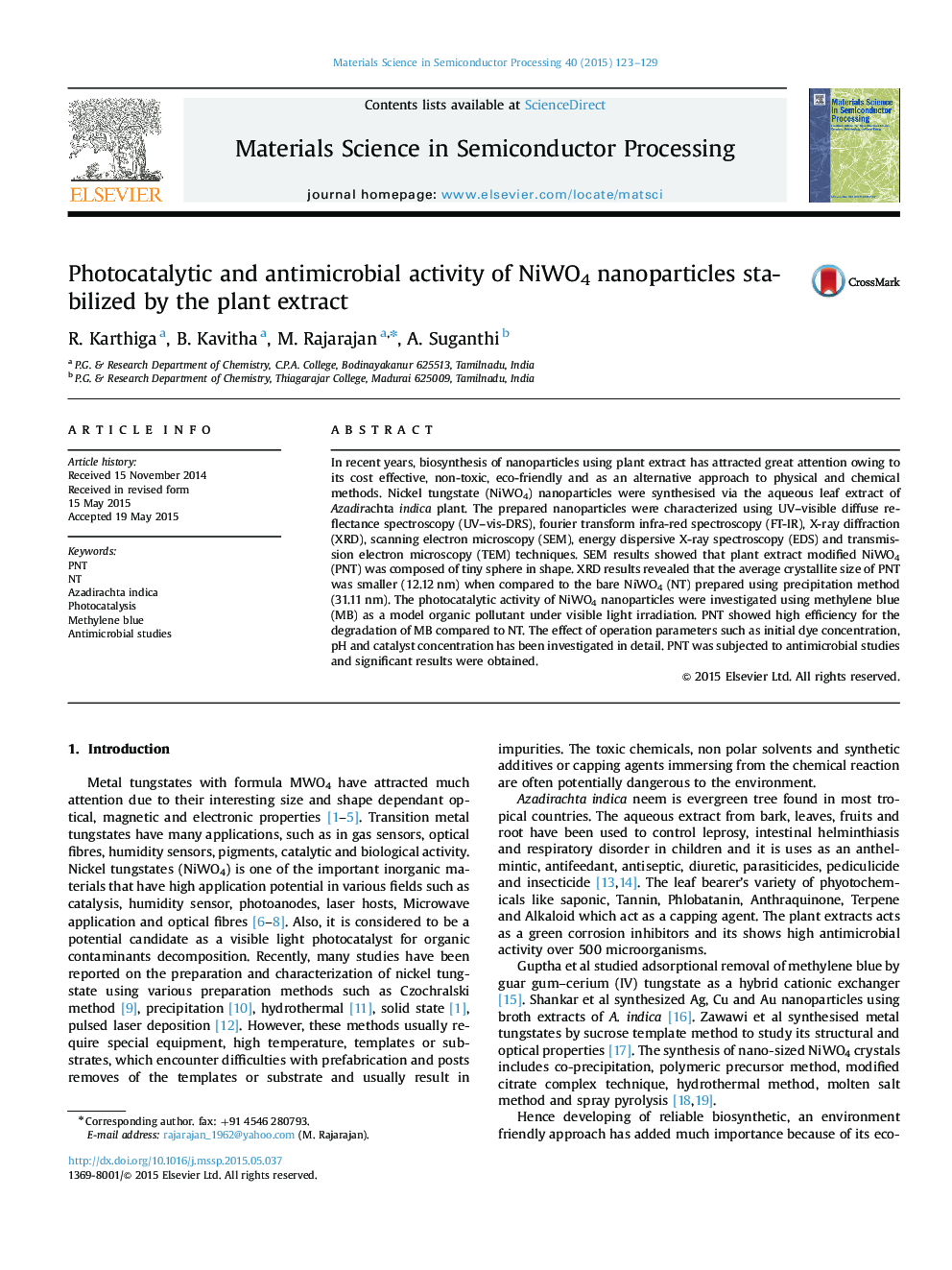| Article ID | Journal | Published Year | Pages | File Type |
|---|---|---|---|---|
| 7118644 | Materials Science in Semiconductor Processing | 2015 | 7 Pages |
Abstract
In recent years, biosynthesis of nanoparticles using plant extract has attracted great attention owing to its cost effective, non-toxic, eco-friendly and as an alternative approach to physical and chemical methods. Nickel tungstate (NiWO4) nanoparticles were synthesised via the aqueous leaf extract of Azadirachta indica plant. The prepared nanoparticles were characterized using UV-visible diffuse reflectance spectroscopy (UV-vis-DRS), fourier transform infra-red spectroscopy (FT-IR), X-ray diffraction (XRD), scanning electron microscopy (SEM), energy dispersive X-ray spectroscopy (EDS) and transmission electron microscopy (TEM) techniques. SEM results showed that plant extract modified NiWO4 (PNT) was composed of tiny sphere in shape. XRD results revealed that the average crystallite size of PNT was smaller (12.12Â nm) when compared to the bare NiWO4 (NT) prepared using precipitation method (31.11Â nm). The photocatalytic activity of NiWO4 nanoparticles were investigated using methylene blue (MB) as a model organic pollutant under visible light irradiation. PNT showed high efficiency for the degradation of MB compared to NT. The effect of operation parameters such as initial dye concentration, pH and catalyst concentration has been investigated in detail. PNT was subjected to antimicrobial studies and significant results were obtained.
Related Topics
Physical Sciences and Engineering
Engineering
Electrical and Electronic Engineering
Authors
R. Karthiga, B. Kavitha, M. Rajarajan, A. Suganthi,
